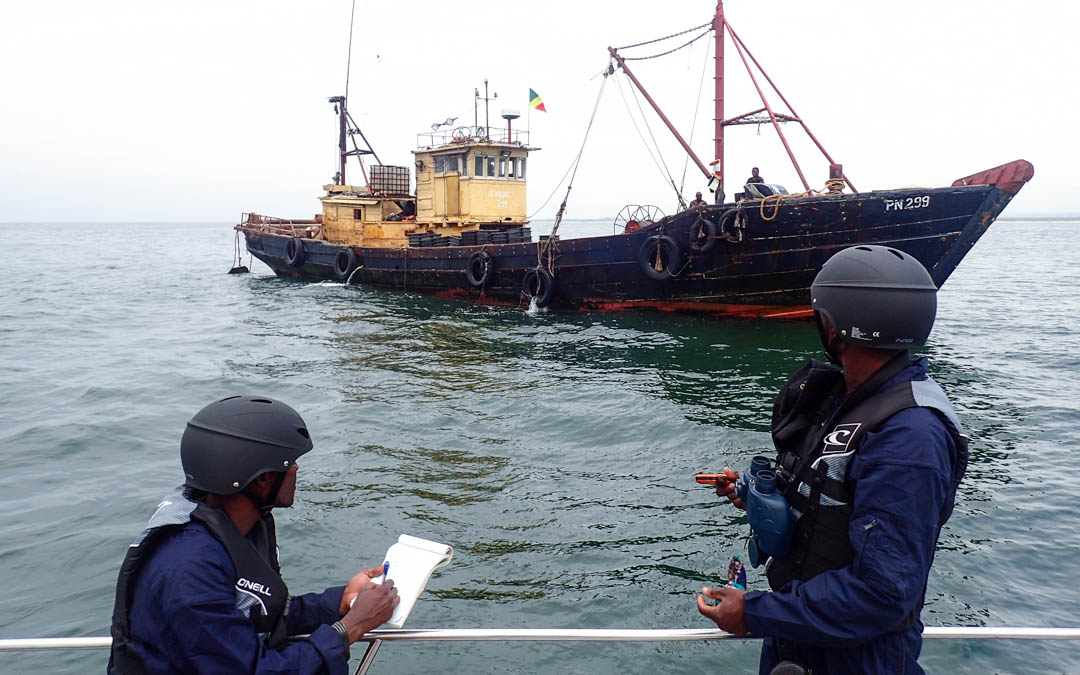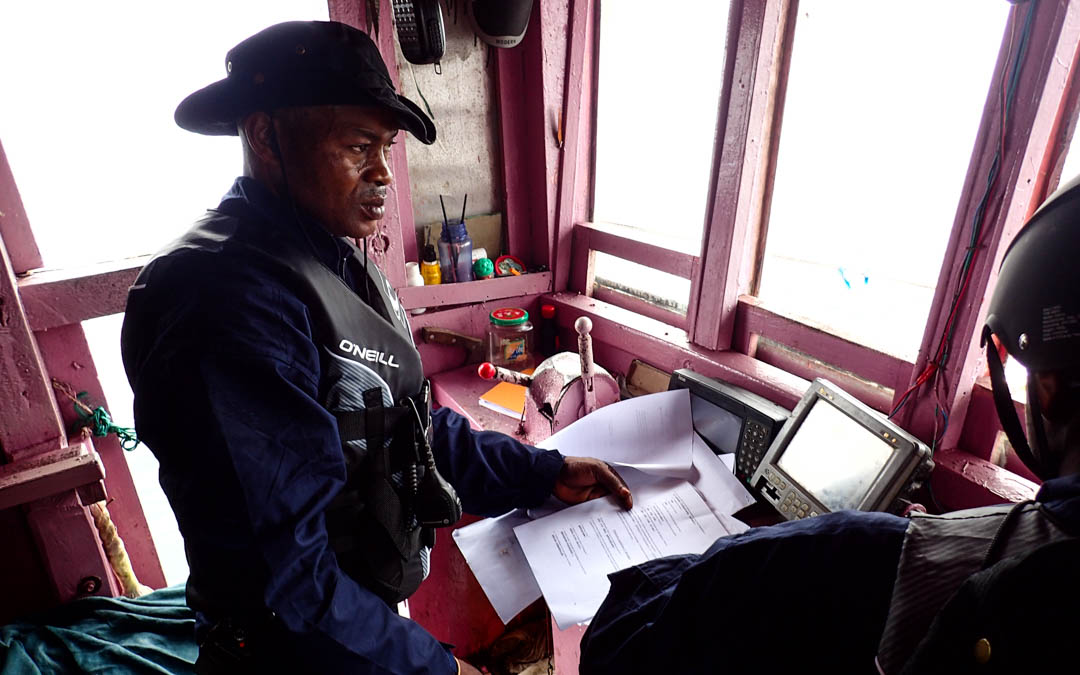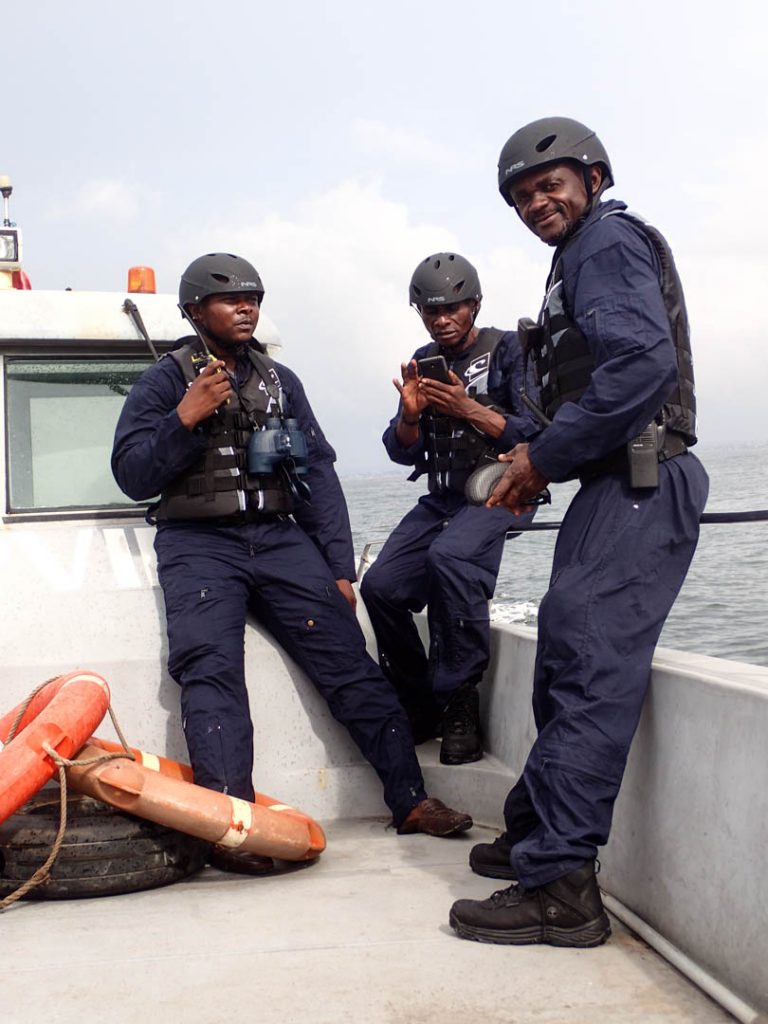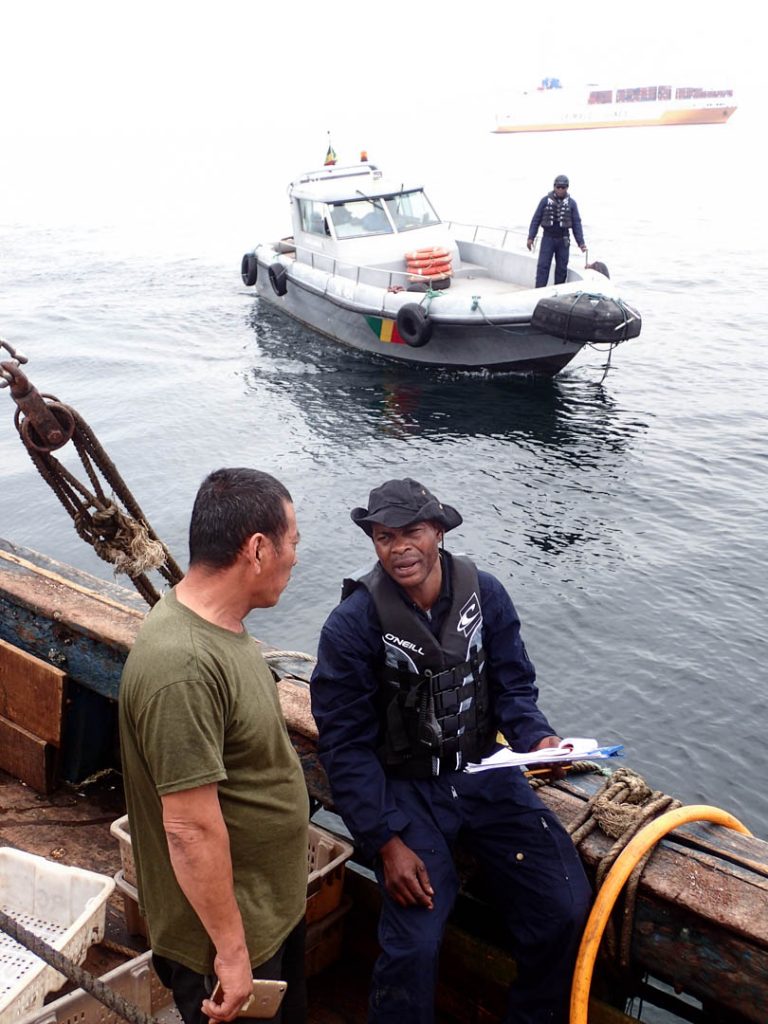
Taking to the sea to protect Congo’s fish stocks
Congo’s coastline is dissected by the snaking mass of the world’s second largest river – the mighty Congo - pumping huge volumes of water into the ocean each second. It is here where the warmer more turbid Gulf of Guinea meets the cooler waters of southern Africa. This transition zone encompasses some of the world’s most productive fishing areas, and a wealth of marine biodiversity. Many communities living along Congo’s coastline depend on fishing for their livelihoods, and the fisheries sector is vital to the country’s food security. However, Congo, like many coastal countries around the world, is under pressure from Illegal, Unregulated and Unreported (IUU) fishing. IUU fishing in Congo accounts for thirty percent of fishing effort and threatens the integrity of the country’s fish stocks.
To secure the Congo’s marine resources, the Wildlife Conservation Society (WCS) and the Congolese Ministry of Agriculture, Livestock and Fisheries are working together to strengthen the fight against IUU fishing. A marine surveillance assessment carried out in July 2018 identified needs for the improvement of marine patrols by the Direction Départementale de la Pêche et de l’Aquaculture (DDPA) of Pointe Noire, the authority responsible for fisheries monitoring and law-enforcement in Congo. At the same time a study carried out by Exeter University, in partnership with WCS Congo, estimated that over two billion FCFA (~3,500,000 USD) would have been generated since 2006 if illegal fishing vessels had been fined the minimum penalty for infractions of fisheries laws. In order to tackle both biodiversity and fish stock loss, and the shortfalls resulting from the lack of law enforcement, two training modules were designed by the WCS Congo Marine Program to meet the needs identified by the assessment which are to improve the planning and execution of patrols and enhance the safety of surveillance operations at sea. In November 2018, WCS Congo and a WCS marine conservation expert, Dr Richard Parnell, organized the first training for the DDPA Fisheries Brigade’s top employees, who after completion of the course will form a specialized marine law-enforcement unit.
Thanks to financial support from the US Fish and Wildlife Service (USFWS), ten people took part in the two-week training course. The group included five DDPA officers, four members of the Congo-based NGO Renatura, which provides operational support for patrol organisation, and one person from WCS Congo, supporting the planning, monitoring and evaluation of surveillance efforts. The first week of training focused on planning marine patrol missions, and the second the execution of patrols at sea. Following the training the officers of the Fisheries Brigade were also provided with the equipment necessary to carry out their marine patrols.

As with the Illegal Wildlife Trade, IUU fishing involves big money. Many illegal fishing vessels are run by people who are willing to take considerable risks to use Congo’s natural resources to their sole benefit. It is therefore vital that this new marine law-enforcement team has the training, know-how and credibility to carry out their job in a safe and professional manner. This training exercise was the first step towards the development of the DDPA’s specialized team of Marine Patrol officers. Properly equipped, and working within a newly implemented structure that ensures better efficiency of operations, this team will soon start actively checking that fishing vessels are respecting Congo’s fishing laws. At the beginning of 2019 the next phase of the training will take the marine patrol officers to sea, where they will practice fishing vessel inspections and law-enforcement exercises in order to standardise patrol procedures and properly manage the risks associated with their operations. Going forwards the marine patrol teams will be better equipped to combat the illegal exploitation of the country’s natural heritage.




Mwanyimi Bushabu David
Is this Congo Brazzaville or Congo Kinshasa?
Zanne Labuschagne
Thank you for your interest in this story. This work is happening in Congo Brazzaville.
Mwanyimi Bushabu David
Is this Congo Brazzaville or Congo Kinshasa? I am in the DRCongo. How can be part of the fight?
Mbongomingi
Bonjour suis de la RD Congo , comment peux-je participé à cette lutte ou contribué à ces effort? Car je suis spécialiste en pisciculture et j’encadre des association piscicoles au Kongo central,.
Pingback: Life below water : for people and planet - WCS Congo blog